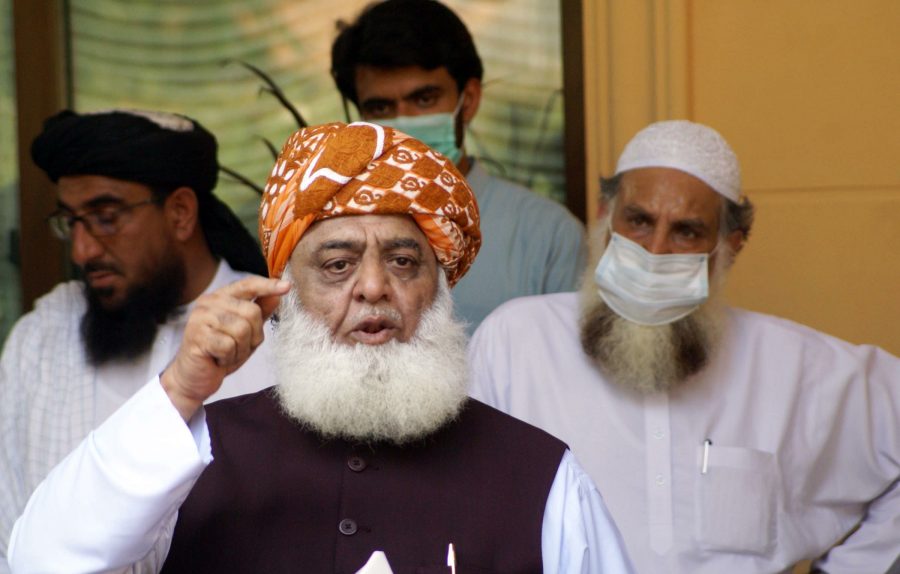Pakistan Democratic Movement President Maulana Fazlur Rehman has accused Chief Justice Pakistan Umar Ata Bandial of imposing “judicial martial law” in the country by usurping all powers.
In a press conference held in Islamabad on Saturday, Fazlur Rehman stated that the CJP has taken over the powers of the Election Commission of Pakistan, parliament, and the government, and has even announced the Punjab election schedule, which he believes is the responsibility of the government.
He alleged that a “judicial martial law” has been imposed, stressing that only parliament is responsible for legislation.
Fazl, who is also the chief of his own faction of Jamiat Ulema-e-Islam, further stated that the CJP formed the bench even before the Supreme Court (Practice and Procedure) Bill, 2023 was enacted, and that constitutionally, powers are divided, and no institution should interfere in the jurisdiction of others.
He rejected the possibility of negotiations with former prime minister and PTI chief Imran Khan, stating that he is an “unwanted element” of politics.
The PDM chief also raised concerns about the establishment’s alleged involvement in rigging during the 2018 elections, questioning whether the current establishment will hold responsible the establishment of that time which, according to him, was involved in “illegal and cruel” rigging.
He emphasised the need for addressing the current economic situation and called for the government to take necessary steps to alleviate the burden on the people.
Fazlur Rehman also spoke about JUI-F’s “Azadi March” during the PTI government’s tenure, claiming that former army chief General (retd) Qamar Javed Bajwa’s representative, ISI chief General (retd) Faiz, former Punjab CM Pervaiz Elahi, and others negotiated with his team.
He stated that it was decided in those negotiations that assemblies would be dissolved and elections would be held, but after the sit-in ended, they went back on their word and said that no such thing was decided.
The PDM chief expressed disappointment over the situation, stating that people in such responsible posts should uphold their promises, and it was now the responsibility of the institution itself to address such issues.









